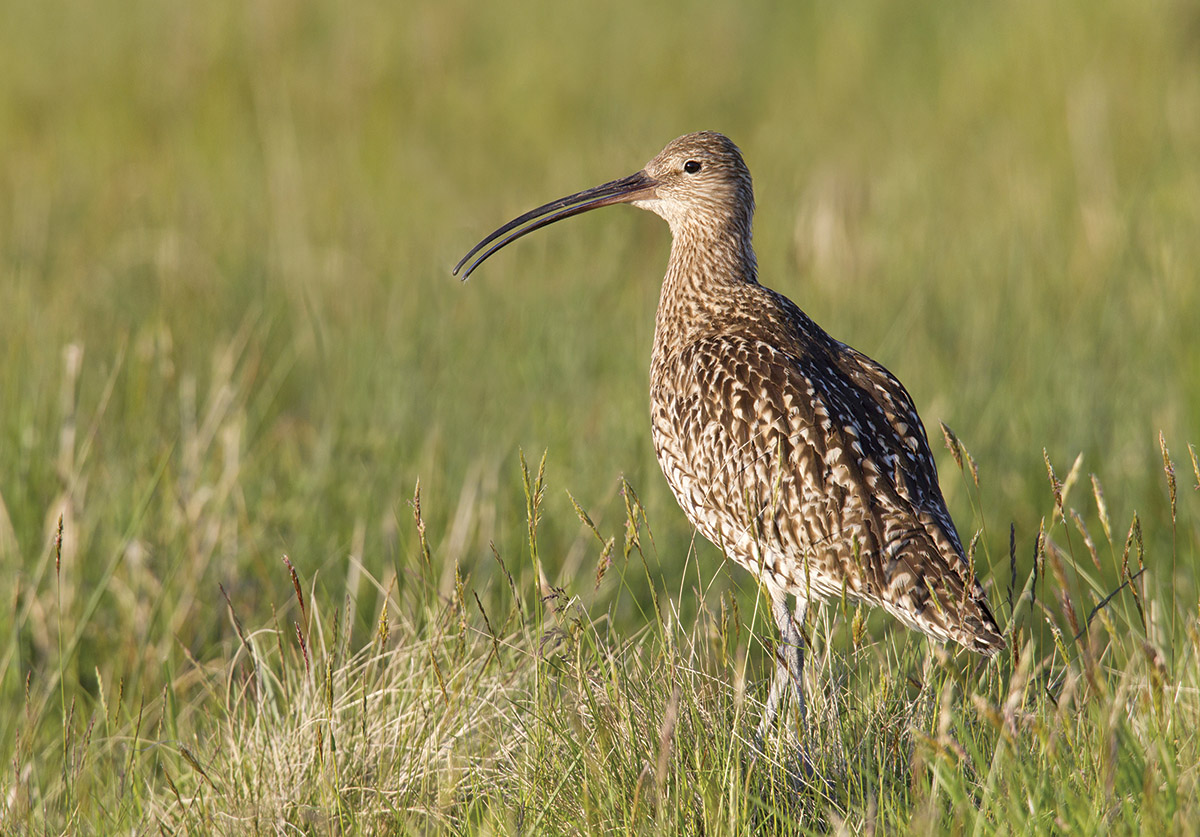
The Royal Society for the Protection of Birds (RSPB) has urged North Pennine farmers to provide habitat for the Eurasian Curlew, which faces being wiped out in Britain.
The nature conservation organisation is calling on farmers in the North Pennines region – which is shared between Co Durham, Northumberland, Cumbria and North Yorkshire – to give a home to nesting Eurasian Curlews.
The wading bird is in serious trouble and could become extinct within a generation unless urgent action is taken.
Britain is one of the most important countries in the world for Eurasian Curlews, hosting up to a quarter of the global breeding population, but since the 1990s their numbers here have almost halved.
The good news is that, in the North Pennines, farmers can take just a few simple steps to help reverse this serious decline.
An EU-funded project to jointly protect Eurasian Curlew and 15 other threatened European species is already underway.
Giving curlews enough time to nest and raise
Janet Fairclough, RSPB Conservation Advisor, provides specialist advice to farmers in the North Pennines about how they can help wildlife thrive alongside their agricultural businesses, and said: "Traditional hay meadows provide excellent habitat for nesting curlews.
"By shutting meadows up in the spring and putting off mowing them until July, farmers can give curlews enough time to nest and raise their chicks.
"If you need to cut meadows before July, keep an eye open for curlews flying up in front of the tractor, as they may have come off a nest.
"Mowing from the centre of the field outwards can help push any flightless chicks out of the way of machinery and into the safety of neighbouring fields.
"Farmers can also maintain rush pasture and allotments to provide a mixture of short and long vegetation across the farm. Grazing with both cattle and sheep provides the vegetation structure that curlews prefer.
"Rush management by cutting or weed-wiping may also be necessary to keep them from becoming too dense."
'Nostalgic to see the majestic birds'
Nick Howard, a sheep and beef farmer from Sinderhope, near Allendale, Northumberland, said: "The call of the curlews on their return to my farm reminds me that spring is around the corner.
"It’s nostalgic to see these majestic birds with their wide wing span and long curved beaks nesting on the same areas of my farm each year.
"My land is managed under a Natural England Higher Level Stewardship scheme. As part of this management agreement, the pastures and hay meadows are not harrowed or rolled during the nesting season.
"This helps to protect and preserve the habitat that the curlews and their chicks need to survive.
"While shepherding the stock, I am always mindful of the nesting sites and I get great pleasure in seeing the eggs hatch."
The dramatic decline of Eurasian Curlew in the last few decades has been caused by the low number of chicks fledging.
This in turn, is the result of a loss of suitable breeding habitats due to agricultural intensification and increased predation from Foxes and crows.
As well as giving curlew-friendly advice to farmers in the North Pennines, the RSPB has launched a five-year recovery programme which includes research on a series of trial sites across the country, to test whether a combination of habitat management and predator control can be effective in halting the curlew decline across the wider landscape.
